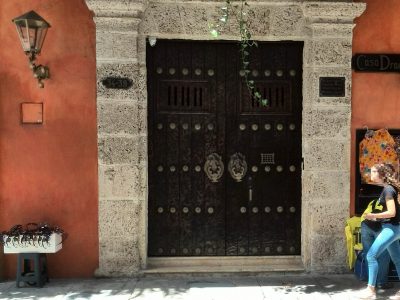Unga internetanvändare i Singapore har kallats för “Onternauts” av Tan Tarn How, en forskare vid institutet för politiska studier. Onternaut är en kombination av orden “online, “alternativ” och “astronaut”.
Forskaren använde ordet för att beskriva ett segment inom den yngre befolkningen som aktivt använder internet för att hålla koll på nyheter, dela information och engagera sig politiskt. Enligt forskningsgruppens studie utgör Onternauterna ca 12,6 procent av den yngre befolkningen.
Syftet med undersökningen är att utröna internets roll i singaporiansk media och politik:
Little is also known about the use of the Internet for political purposes. Among the questions that need to be answered are: How much do people use the Internet and traditional media for political information, and what is their trust of and assessment of the importance of different media as a source of political information?
Vilka egenskaper har Onternauts?
They are politically more knowledgeable, interested and liberal. They also tend to be more politically engaged online and off- line, be it posting a comment on a blog or speaking to politicians.
…The study also found that 30 per cent of Singaporeans are political cynics, defined by their distrust of politicians.
…These cynics are more likely to use online alternative media and foreign websites. They also prefer to use interpersonal channels like face-to-face meetings to discuss politics, the survey found.
…Studien visar också att 30 procent av singaporianerna är politiska cyniker, att döma av deras misstro till politiker.
…Dessa cyniker använder sannolikt mer mediaalternativ på nätet och utländska webbplatser. Undersökningen visade också att de föredrar mellanmänskliga kanaler såsom personliga möten för att diskutera politik.
Men bloggaren Everything Also Complain gillar inte termen Onternaut:
‘Onternaut’ is a hastily assembled portmanteau that sounds to me more like a dinosaur Decepticon from Transformers than someone politically active in social media. We used to call people who trawl the web for information ‘surfers’, people with personal websites ‘web hosts’, later converted to ‘bloggers’ and subsequently ‘netizens’, implying a community of people with common ideologies who simply spend more time online chatting and posting information rather than sit around discussing politics. Apparently you don’t ‘surf’ online anymore, either you float around helplessly in a vacuum like astronauts do, or embark on a flight plan around ‘cyberspace’ in a metaphorical rocket ship. As a ‘blogger’ myself, I don’t find anything ‘naut-y’ about what I do online.
Today, getting online and navigating it is as mundane as the air you breathe and there’s nothing about the experience that resembles the soaring, desolate majesty of conquering the final frontier.
Idag är det lika vardagligt att ge sig ut på internet som att andas, och det finns ingenting i upplevelsen som kan liknas vid en ärorik rymdfärd i jakt på att erövra världens ände.
Yawning Bread påminner allmänheten, i synnerhet politikerna, att inte skylla på alternativa webbplatser för ungdomars politiska aktiviteter:
They are exposed to mainstream media as much as they are exposed to alternative websites, and yet their political traits are distinct. That being the case, one cannot say that alternative media changed them. It might be more correct to say they were different first, and then found a way to voice their different outlook through the internet.
For anyone, including the People’s Action Party (author’s note: Singapore’s ruling party), to accuse alternative socio-political websites of “radicalising” Singaporeans, is to misunderstand the dynamics.
Alla som anklagar de alternativa samhällspolitiska webbplatserna för att ha “radikaliserat” singaporianer, inklusive People's Action Party (det regerande partiet i Singapore), har missförstått dynamiken .
Anonymous säger att han läser de alternativa webbsidorna för att de traditionella medierna är kraftigt vinklade:
Jag tillhör de 12,6 procenten. Jag känner mig tvungen att läsa alternativa samhällspolitiska webbsidor för att jag tycker att de traditionella medierna är alldeles för vinklade i sin rapportering av lokal politik.
Ravi Philemon tycker att undersökningen bevisar att de som läser alternativa webbsidor även tar in nyheter från konventionella källor:
This comment by Mr Tan actually debunks the widespread belief especially among those from the establishment, that the internet has been the instrument of ‘self-radicalisation’. The fear being those that get their news from the alternative websites, will not get to see the views as expressed in mainstream sources.
The survey actually proves that those who consume news from the alternative websites, also consume the mainstream ones. And so in that sense, there is little to worry that Singaporeans who consume news from alternative sources are ‘ghettoising’ themselves.
Undersökningen bevisar faktiskt att de som läser nyheter från alternativa webbplatser också läser de traditionella. Så därför finns det ingen anledning att oroa sig för att singaporianer som läser nyheter från alternativa källor “snöar in” sig.







